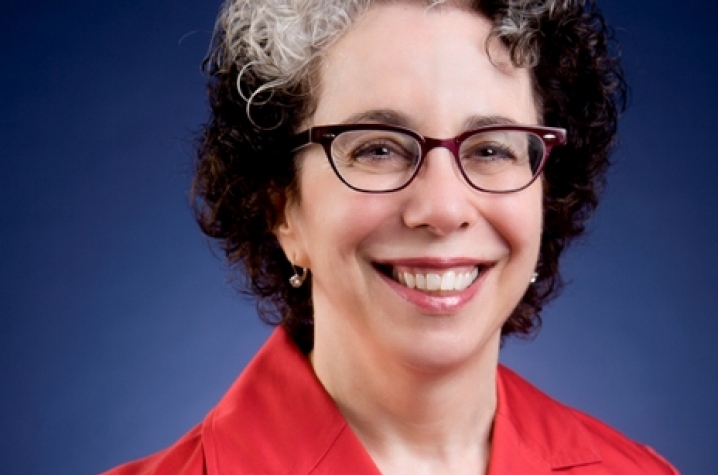Dean of Michigan Graduate School Next in 'see tomorrow.' Speaker Series

LEXINGTON, Ky. (April 7, 2014) ― Janet Weiss, vice provost for academic affairs–graduate studies and dean of the Rackham Graduate School at the University of Michigan, will speak on the UK campus Tuesday, April 8, about the changing role of graduate education as part the "see tomorrow." Speaker Series.
She will speak at 9 a.m. Tuesday, April 8, in the UK Athletics Auditorium in the William T. Young Library. UKNow recently caught up with Weiss for a conversation about her upcoming talk and the state of graduate education.
As vice provost and dean, Weiss oversees all of the University of Michigan’s doctoral programs and many of the master’s programs. She serves as the Provost Office’s advocate for policies and practices benefitting all graduate and professional students at the university.
What do you plan to talk about while at UK? I will talk about the role of graduate education in public research universities, and how that is changing over time. I have served on the Board of the Council of Graduate Schools and as President of the Association of Graduate Schools, so I've had a chance to see how many different universities approach the challenges and opportunities of running graduate programs (professional, master's, and doctoral programs) alongside of their undergraduate programs. I am convinced that graduate education is fundamental to the excellence of a research university.
How would you describe the current state of graduate education today? The current state of graduate education is rapidly changing, just like higher education more generally. The demands and expectations of society go up, as do the expectations of students. As universities, we need to make the best choices to meet those expectations.
What are the biggest challenges? Challenges abound. Where will the money come from to support high quality graduate study (which is expensive!), and how do we align our academic priorities with the resources available? How will changes in academic employment affect the future careers of our Ph.D. graduates? How do students manage to pay for the cost of obtaining a master's degree, and when is that worthwhile for them?
What do you see as some opportunities? Opportunities also abound. Traditional disciplines are blurring and morphing into one another. To keep up with cutting-edge research and scholarship, graduate education can morph and blur as well, to create much more innovative structures for degrees and for students to learn how to address big picture problems in society.
Are you optimistic about the future? Yes, I am optimistic. Universities are places for learning and building for the future. Today's graduate students will be tomorrow's faculty members, professionals, political and civic leaders, entrepreneurs, writers, and innovators.
The "see tomorrow." Speaker Series is an ongoing effort to engage with the campus community about the Strategic Plan. Experts, both from UK and from other organizations in higher education, will speak on topics related to the process.
Weiss served as associate provost for academic affairs from 2002-2005, before assuming her current position. In that role, she was responsible for a range of academic issues, including faculty promotion and tenure; support for museums and libraries; facilities and space planning; and family-friendly policies. Weiss has been on the faculty of the University of Michigan since 1983, with a joint appointment between the Stephen M. Ross School of Business and the Gerald R. Ford School of Public Policy.
Weiss also founded and directed the Nonprofit and Public Management Center, creating a rich set of opportunities for faculty and graduate students in the realms of research and community engagement.
She earned her Ph.D. from Harvard University in psychology and social relations and her bachelor's from Yale University, where she was a member of Yale's first class of women.
This "see tomorrow." Speaker Series will continue throughout the spring semester and after UK President Eli Capilouto presents the plan to the Board of Trustees in June.




